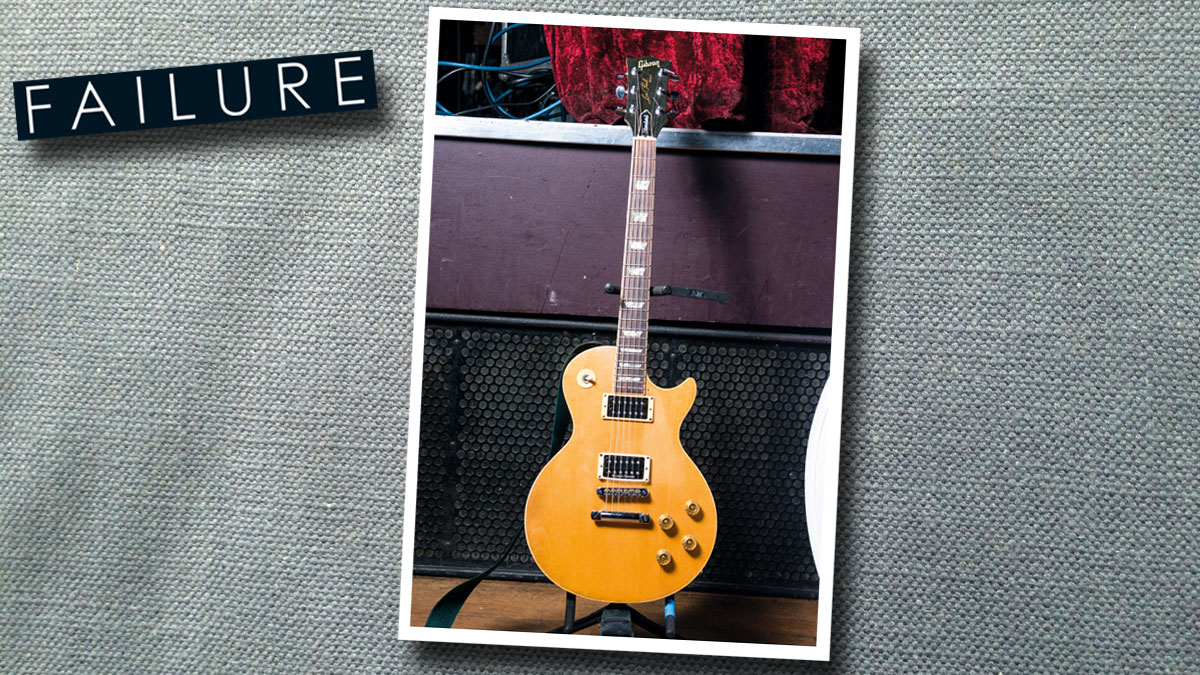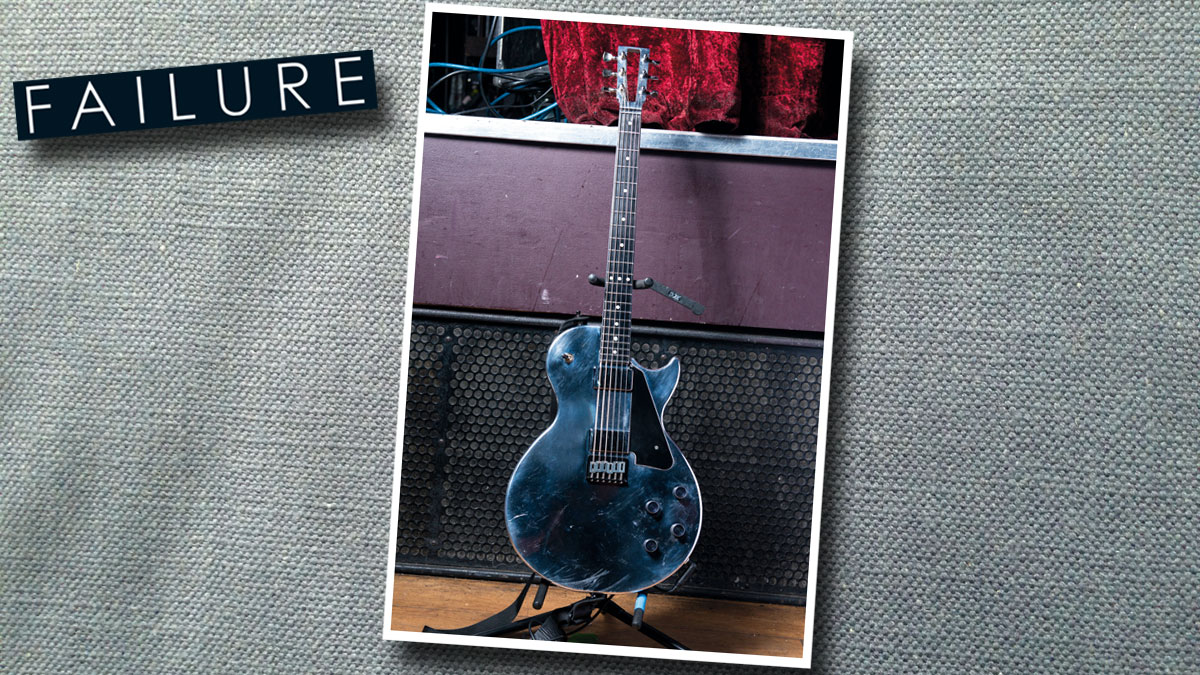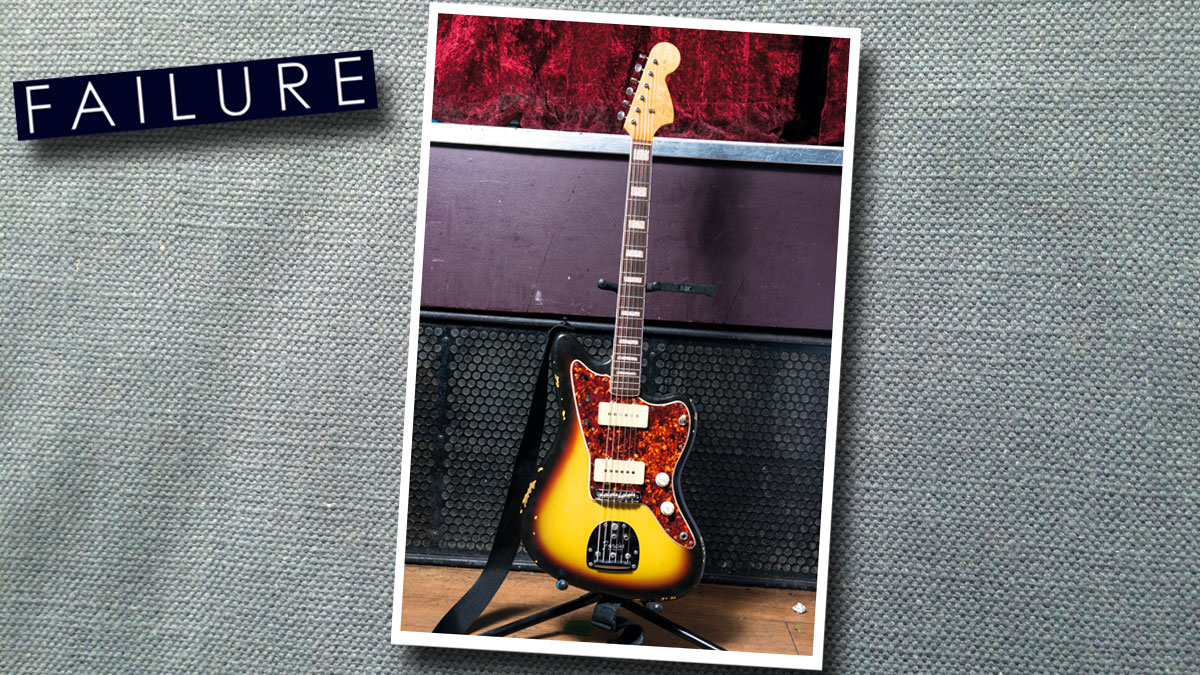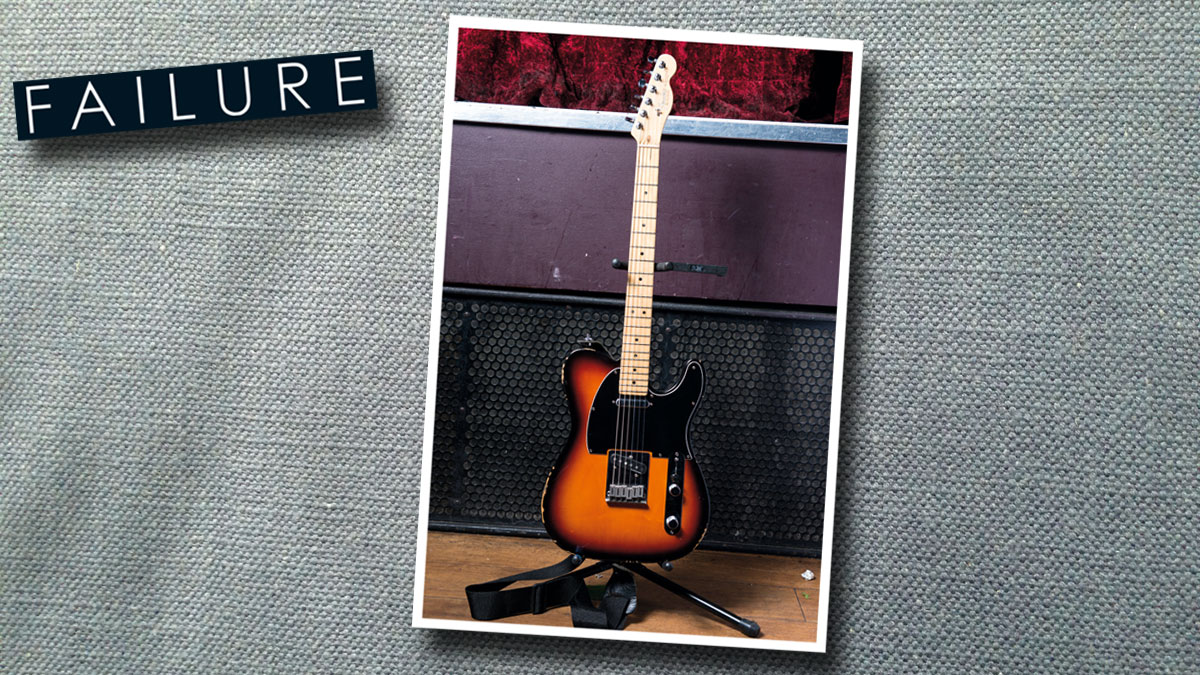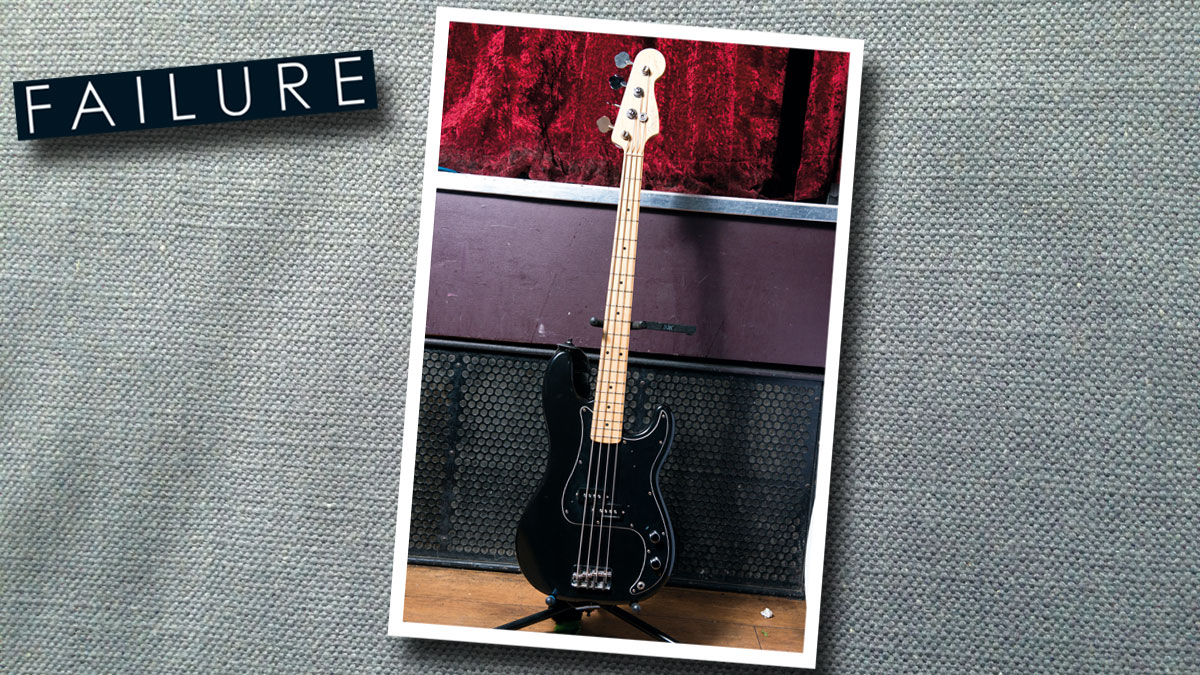Failure talk new album The Heart Is A Monster
The unconventional rock band discuss their fall and rise
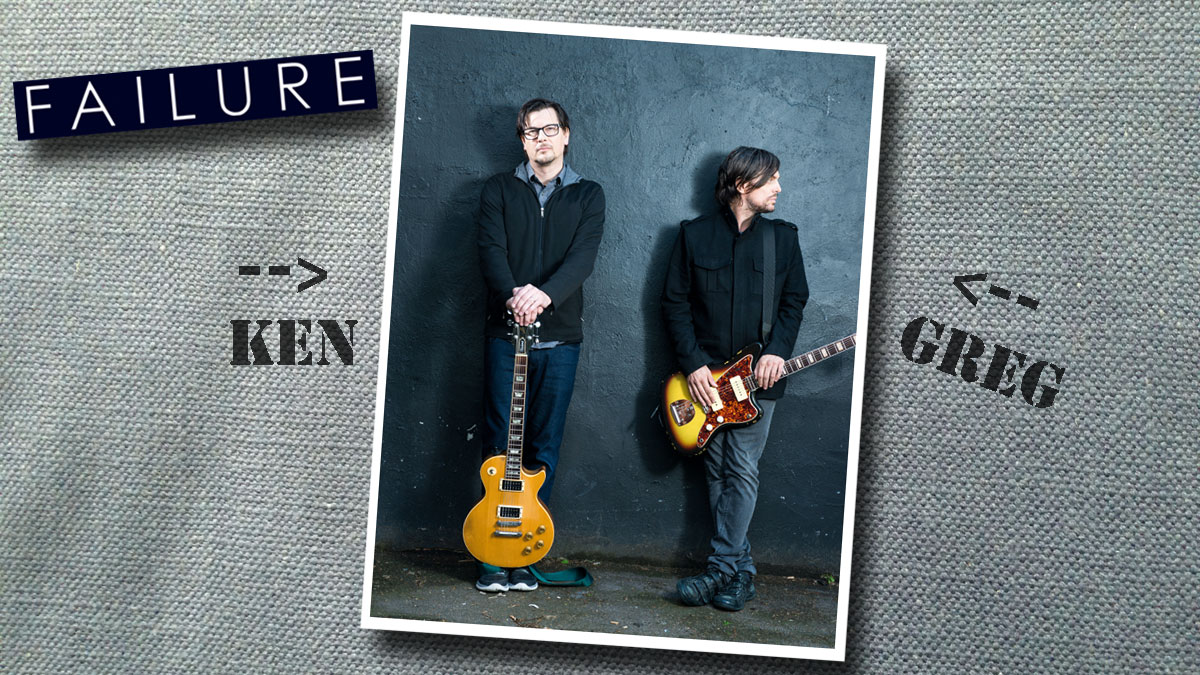
Introduction
Two players, one innovative band, unfairly swept to the sidelines in the 90s alt-rock gold rush. 18 years later and the world is finally ready for Failure.
It was the cruellest of ironies that a band named Failure would never quite live up to the success predicted of them. Formed in 1992, the LA trio of Ken Andrews, Greg Edwards and Kellii Scott tasked themselves with moving alternative rock forward.
The band recorded their debut album, Comfort, with Steve Albini, before boldly self-producing two critically lauded records in Magnified and cult classic Fantastic Planet.
"Now it’s a completely different situation: we’re playing to a new audience that knows our material inside and out" - Ken
However, despite influencing a swathe of modern giants - from Tool to Paramore and Deftones - the band never became the radio-friendly unit-shifters so desired by the era’s record industry.
Drug problems followed and the innovative songwriting duo of Edwards and Andrews - two spookily complementary players who would frequently swap guitar and bass - finally drove each other apart in 1997.
Perhaps history has a sense of justice after all, though, because 18 years later, driven by fan fervour and rekindled relationships, Failure have reunited, playing to packed venues and recording a new album, The Heart Is A Monster.
We spoke to Ken and Greg about their tumultuous history, their unique creative partnership and making a success of Failure...
How did playing in the UK for the first time in 20 years compare to last time?
Ken: “No comparison, really! Last time, no-one knew who we were when we came over and, because of lack of label support, no-one really knew after we left, so there was a bit of a frustration. Now it’s a completely different situation: we’re playing to a new audience that knows our material inside and out and [is] welcoming us. It was actually a very emotional show.”
Greg: “Yeah, last time, I remember one show we played with Tool at the Astoria and, in terms of the audience’s reaction, nothing stands out in our memory. But the other night, the reaction was really astounding.”
You reformed in 2013 - why then?
"The idea of doing an almost ‘Las Vegas Revue of Failure’ - that idea is sort of disgusting to me, actually" - Greg
Greg: “It was just that enough time had passed. Ken and I both had a child at the same time in 2009-ish and we reconnected on that level. So then it just naturally, slowly snowballed into us working together again.
“I had gotten over at least the substance issues - the underlying personality disorders will probably always be there! But I think a lot of the tension had been released slowly over that period of time and I think that was the key to us wanting to get back together.”
Ken: “It took us that long to rebuild our friendship. The band broke up in ’97 because of drug problems and the trust issue was still in the forefront of my mind, initially.
“Then we both had our first kids about seven years ago, within the same six months, and being new fathers is kind of a scary thing, so to have an old friend to bond with over that brought us closer than we’d ever been.”
Do you think that because you’ve not reunited in order to cash a promoter’s cheque that it led to a stronger bond?
Greg: “Yeah. That was really distasteful to us. The idea of doing an almost ‘Las Vegas Revue of Failure’ - that idea is sort of disgusting to me, actually, so it was absolutely essential that we figured out if we could write songs again and come up with something of value, and we did that before we toured at all.
“We toured without playing any new material, but we knew that we would release a fourth record that could stand alongside the other three.”
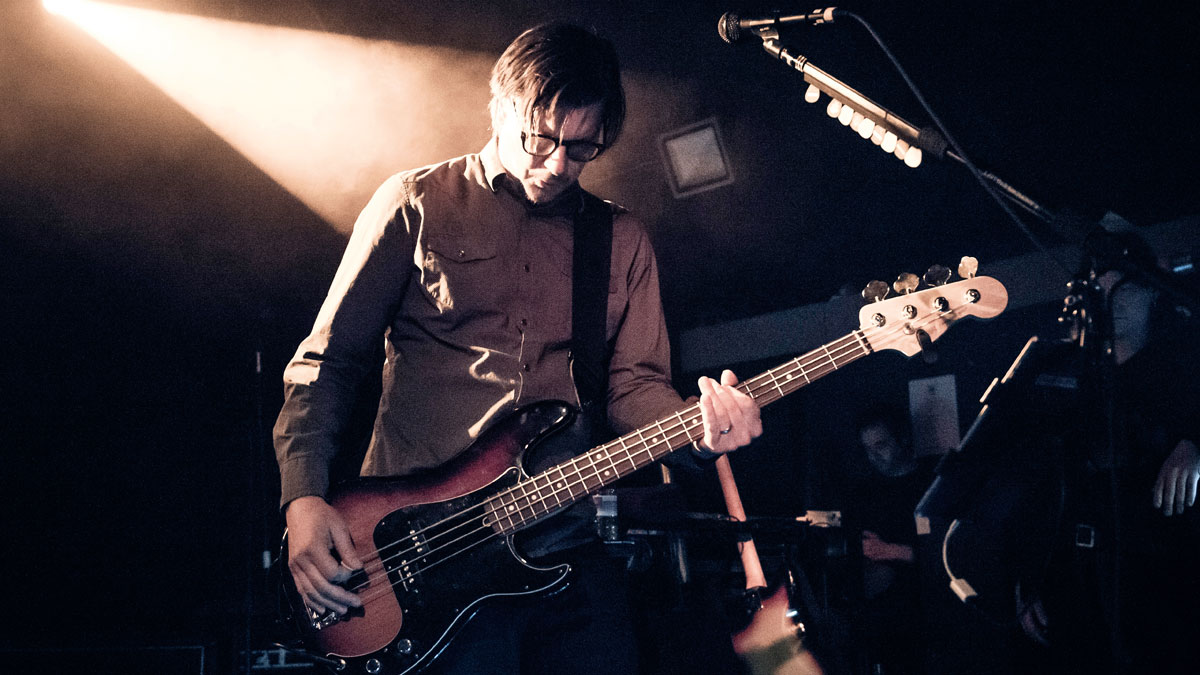
Snow Angel
What was the first track, or music you played together when you got back in the studio?
Ken: “I believe that was Snow Angel, which was the first track we wrote together and we did that in 2013. That’s where we decided. That song, the way it turned out, really excited us. We felt it was in the realm of the Failure sound and it gave us confidence to write a few more songs.”
"Snow Angel was the first track we wrote together in 2013. That’s where we decided. That song, the way it turned out, really excited us" - Ken
Greg: “I thought from the moment I wrote that part [years before], ‘This would fit onto the next Failure record, if there’s going to be one, which there isn’t!’ That was how I was feeling at the time, but that was the first one we worked on.
“I had the verse part, but we worked on the chorus part together and hammered out the arrangement, then did overdubs the next day - and that’s pretty much how it stands on the record.”
The chiming lead guitar tone in the Petting The Carpet intro from the new album feels classically Failure, but also very fresh and it seems to warp throughout the song. How did you get that sound?
Ken: “Oh that one, I have to say I spent the most time on that sound! We’d recorded that song once before, on Comfort actually, and it’s one of two very old songs that we’ve redone for the album - the other one being I Can See Houses.
“So there was an existing sound that was in my head and I liked certain aspects of that sound and wanted it to be in the new sound, but I also wanted a distortion and sustain level and also a chimeyness to it. It ended up being two performances and two different sounds, making up that tone.
"Mulholland Dr, to me, always felt like a progression from The Nurse Who Loved Me [from Fantastic Planet]" - Greg
“The main difference [between the two] was the amount of ambience that I have on the sound. The slightly cleaner of the two has a prominent room ambience on it, whereas the more distorted has a little bit of a slapback on it.
“It’s quite a thick sound, actually, it doesn’t really work for chords, it gets too big and jumbled up, but for that kind of line it’s [great]... I probably spent three or four hours on that one [tone]! Just getting it to where it worked for that part and didn’t use it for any other parts in the song.”
Mulholland Dr has a strong Pink Floyd-y feel to the chord progression and melody...
Greg: “Yeah, I think I started playing that piano chord progression a while ago. It just came out one day and I always thought that would make a good Failure song. To me, it always felt like a progression from The Nurse Who Loved Me [from Fantastic Planet]. Nurse was written on acoustic guitar, but it also has a long progression in the verse and Mulholland Dr has an even longer one, so in a way, it’s a counterpart.
“But I definitely remember that when I wrote that chord progression I was pleased and I felt like I had done my ultimate homage to this certain Beatles/Pink Floyd kind of mood and I could be done with that. So that’s definitely there and something I love about both of those bands.”
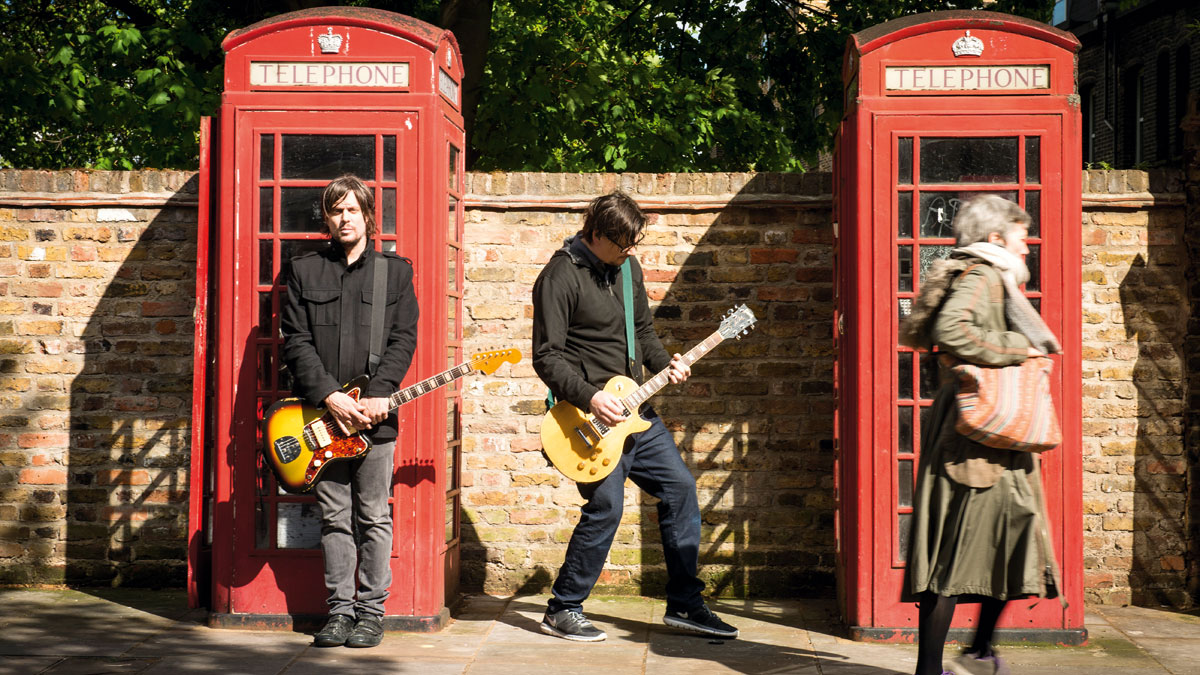
Switch hitters
The two of you were known for constantly swapping bass and guitar duties. Did that happen this time?
Ken: “Yes, a lot. Probably even more. There’s a lot more syncopation on this record, so it’s more difficult to play the stuff on this record than it was on Fantastic Planet, so a lot of times it’s simply a matter of me wanting to play the easier part live.
"Greg has become an even better guitar player than he was on Fantastic Planet" - Ken
“Then Greg has become an even better guitar player than he was on Fantastic Planet. When we were touring in the past I would have played bass on maybe 30 per cent of the set, but now I’m playing on easily half of the set.”
Greg: “It just keeps it fresh because when someone is on one instrument and you get stuck on the chorus, you can just switch instruments and all of a sudden it’s this fresh thing.
“It keeps me off-balance, and when I’m uncomfortable or a little scared of the instrument I come up with the most interesting things. Guitar playing was always throwing my fingers on these crazy little frets and strings and listening for something good. I like that Jackson Pollock approach.”
Troy Van Leeuwen joined the band on the Fantastic Planet tour. Was he invited to participate in this record?
"It was nice to have Troy Van Leeuwen come in with the three of us. It was good to have his stamp on there" - Greg
Ken: “Yes, Troy is the only other musician on the record. He plays on four songs. There are two reasons why he isn’t officially ‘in the band’: one is that we wanted to go back to the trio sound, the other is that it’s a reality-based decision - Troy’s in Queens Of The Stone Age who are a hard-working, hard-touring band and the scheduling conflicts mean it’s kind of a non-starter.”
Greg: “It was nice to have him come in with the three of us, though, because he’d never played on anything on Fantastic Planet. It was great working with him. Everything he played was tasteful and he did it quickly. It was good to have his stamp on there.”
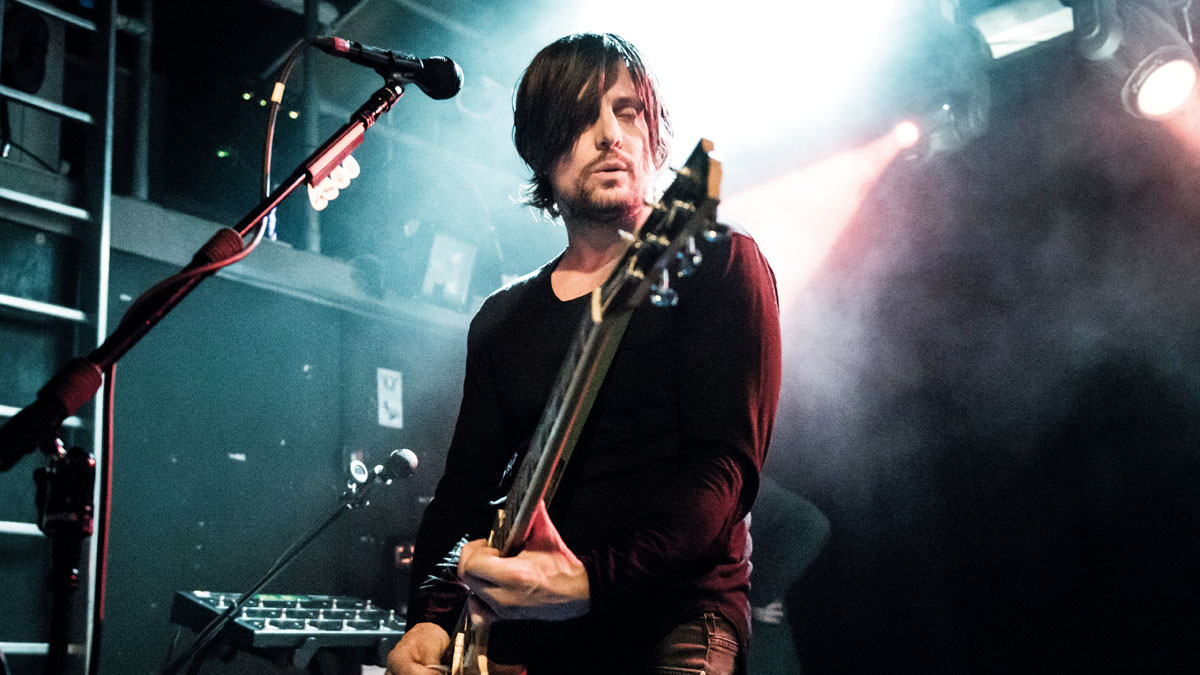
Past Failures
If you had your time again, with Failure’s 90s era, would you do anything differently?
Ken: “I don’t know. Maybe I would have waited before we made that first record. We’d only played 20 shows before we went in with Steve Albini to record and, to me, it was just too early. The other two, though, especially Fantastic Planet, I felt we were firing on all pistons, so I wouldn’t have changed anything about the making of that record.”
"If you can take elements of what someone else has done and use it in your own way, that’s your prerogative" - Greg
Greg: “There are so many things that I know I should have done differently, but at the same time, I don’t know that I would want to change anything because it’s what made the music what it is.
“After Fantastic Planet finished and my life kind of went downhill quickly into an abyss of drug addiction, at that point I could have made some better decisions. But all of the unhealthy, stupid living that I did through the making of Fantastic Planet, I actually probably wouldn’t change, because I wouldn’t want to change how that record turned out.”
How did you feel seeing these bands influenced by your music becoming huge successes? Vindication or annoyance?
Greg: “I’m never annoyed by it. It’s all up for grabs: if you can take elements of what someone else has done and use it in your own way, no matter how unsavoury it may be quality-wise, that’s your prerogative. Most of the influence that I’ve heard is complete fair play and I’m happy to be a ‘source’ like that.”
"Now there are so many avenues to get your music out there that don’t involve a third party, it’s really wonderful" - Ken
Ken: “The frustration that we felt during our run in the 90s was something I tried to leave behind after we broke up in ’97. I was fairly creatively fulfilled, but we always felt we didn’t get a fair shake and it just makes this process right now feel so redemptive.”
The music world has changed massively in 20 years. Do you think the current landscape is more suited to Failure?
Ken: “For sure. This whole reboot has really been fan-driven from the outset, from fans emailing us to family members encouraging us. It’s a beautiful thing. Now there are so many avenues to get your music out there that don’t involve a third party, it’s really wonderful.
“Before, if you didn’t break through and have that crossover single, you were always in the red. Now there’s that in-between option where you can be playing to a couple of thousand people and survive, which for us has always been the goal.”
Greg: “There’s less monetary support from record companies now and, because of that, it’s a much more open, creative environment. There’s not as much pressure to write something for the radio. All of that pressure that did exist in the 90s has gone. It’s nice not to hear that noise in the background.”
Failure’s new album, The Heart Is A Monster, is out now via Failure Records.
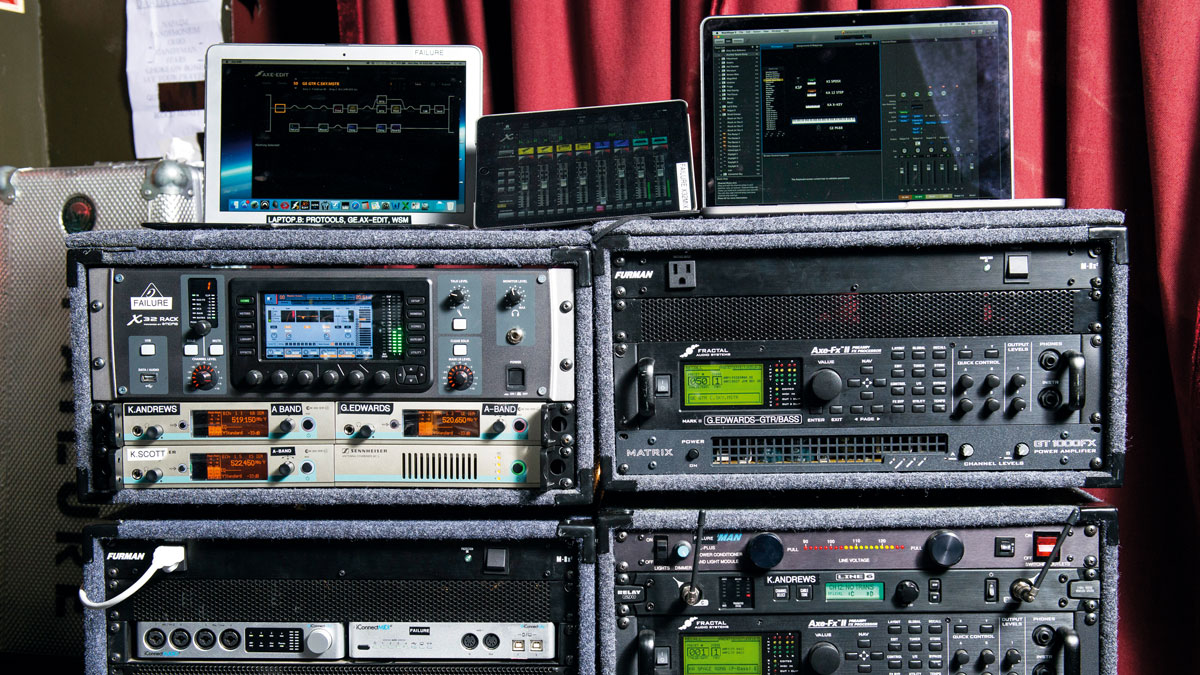
Fractal Axe-FX II
Ken: “We use the Fractal Axe-Fx now, pretty much exclusively. One of the reasons is that it can do bass and guitar quite well, so that’s how we do it, but there’s just so much you can do with routing and effects in the Fractal in terms of getting a new sound for a particular part.”
Greg: “It’s amazingly effective, although unromantic. You can dial in most effect sounds you’d need. The other great thing about it is that the signal chain you’re recording in the box is then saved as a preset and you can just use that live. So there’s no running around trying to figure out how you’re going to arrange your rig to get those sounds.”
Matt is a freelance journalist who has spent the last decade interviewing musicians for the likes of Total Guitar, Guitarist, Guitar World, MusicRadar, NME.com, DJ Mag and Electronic Sound. In 2020, he launched CreativeMoney.co.uk, which aims to share the ideas that make creative lifestyles more sustainable. He plays guitar, but should not be allowed near your delay pedals.
